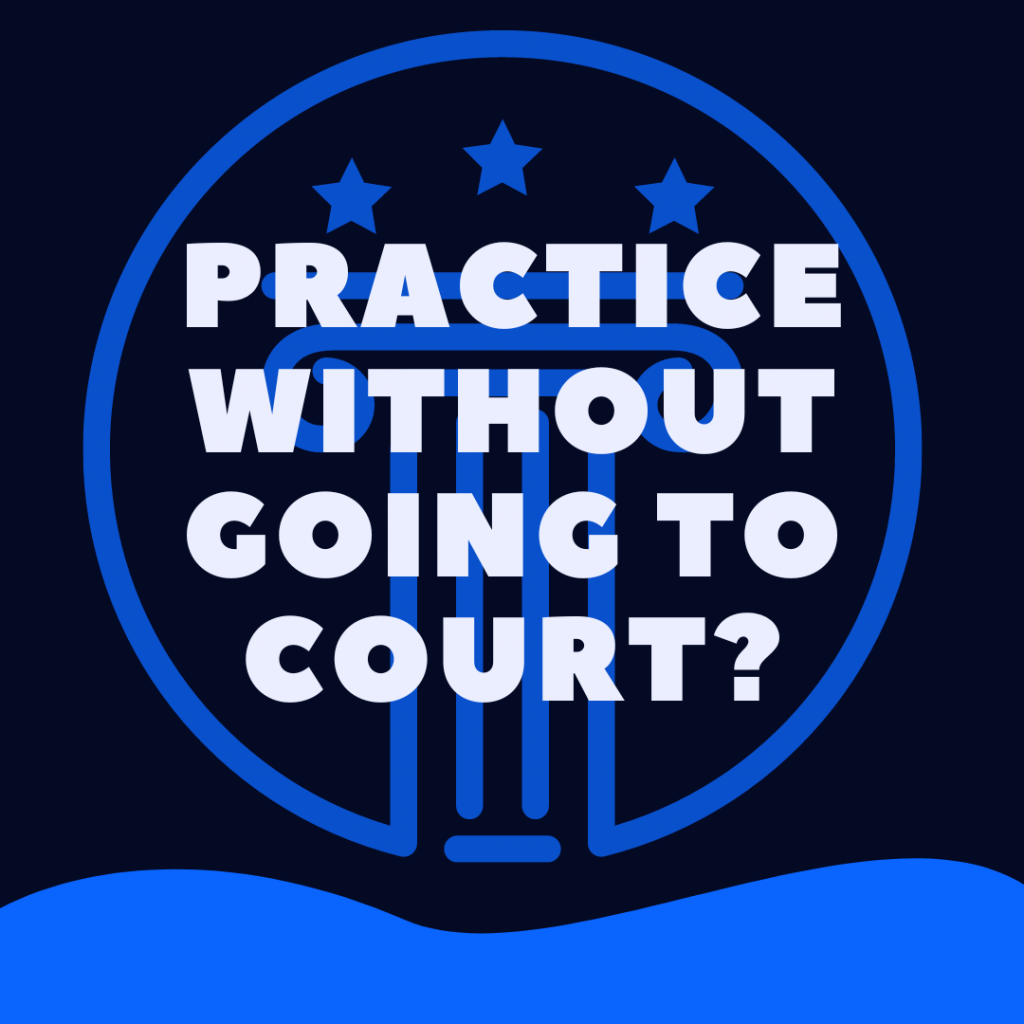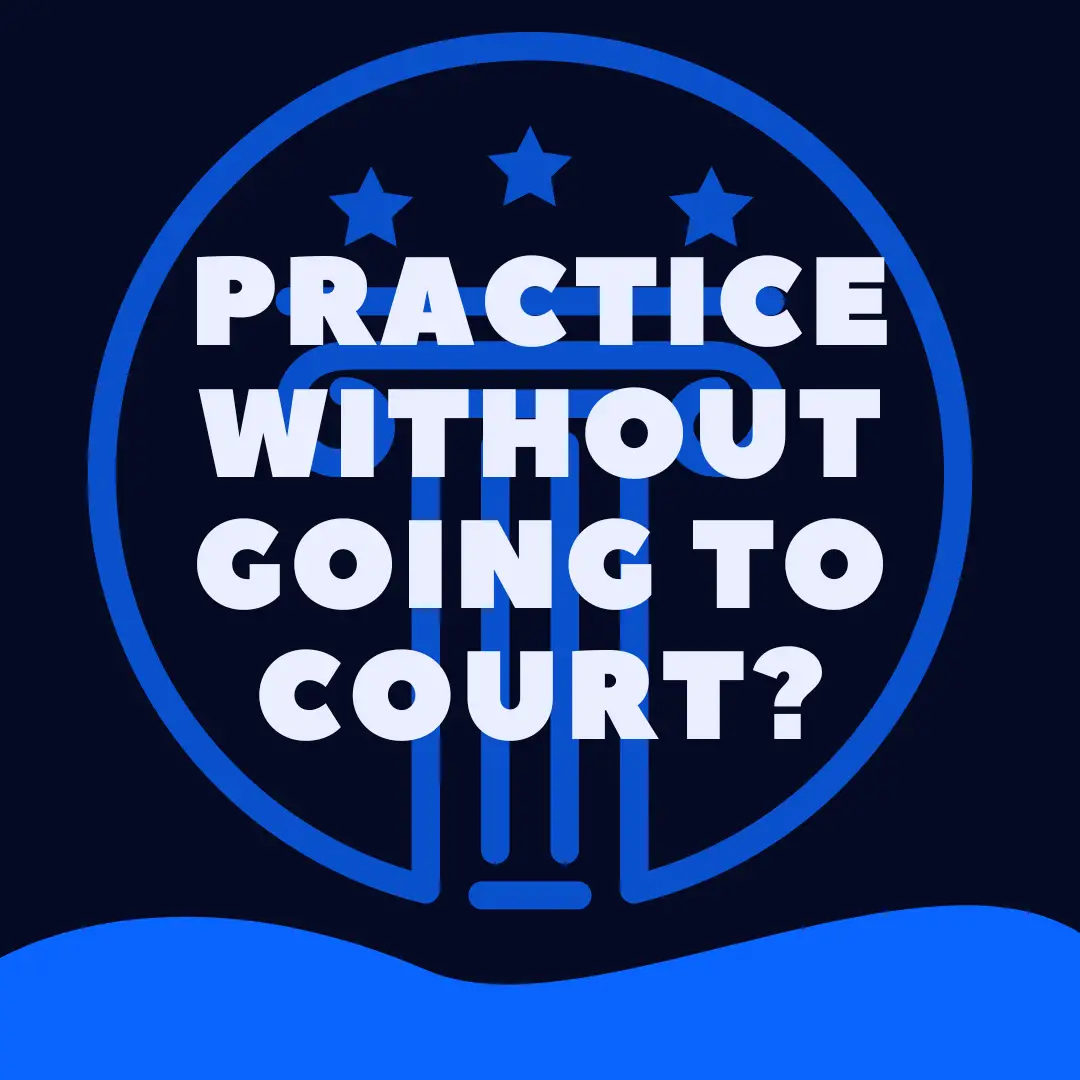It is certainly possible to be a lawyer without ever setting foot in a courtroom.
There are many different types of lawyers, and some specialize in areas that don’t involve litigation.
For example, transactional lawyers handle transactions between businesses, such as mergers and acquisitions.
Corporate lawyers may draft contracts or advise on business compliance issues.
Intellectual property lawyers help protect their clients’ patents, copyrights, and trademarks.
And tax lawyers help businesses and individuals with tax-related issues.
Of course, many lawyers do litigate, and for some, it is the most exciting part of the job.
If you are interested in a career in law but don’t want to go to court, there are still plenty of options available to you.
Can You Be a Lawyer Without Going To Court?
Disclaimer
The contents of this web page are for informational purposes only, and nothing you read is intended to be legal advice. Please review our disclaimer about law/legal-related information on this website before taking action based upon anything you read or see.
Estate Planning (Wills, Trusts, and Estates)
An estate planning lawyer helps clients plan for the distribution of their assets after death.
This may involve drafting wills, trusts, and other legal documents.
Estate planning lawyers may also help clients with tax planning, asset protection, and charitable giving.
These lawyers rarely attend court for anything, and if a court appearance is needed, they might even pull in another lawyer to handle the appearance.
Corporate Law
A corporate lawyer provides legal advice to businesses and represents them in court.
Corporate lawyers may draft contracts, advise on compliance issues, and negotiate mergers and acquisitions.
They help businesses form and dissolve.
They may also help businesses with initial public offerings (IPOs) and other securities matters.
Corporate lawyers rarely go to court, and often bring on trial counsel to handle lawsuits.
Bankruptcy Law
A bankruptcy lawyer helps individuals and businesses file for bankruptcy.
Bankruptcy lawyers may help clients reorganize their debts, liquidate their assets, or develop a repayment plan.
They may also represent creditors in bankruptcy proceedings.
Bankruptcy lawyers often go to court, but most of their work is done outside of court, such as meeting with clients and negotiating with creditors.
Court appearances are usually transactional in nature.
Intellectual Property Law
An intellectual property lawyer helps clients protect their patents, copyrights, and trademarks.
These lawyers may help clients file for patents and trademarks. Intellectual property lawyers often work with tech companies, but they can work with any type of company that needs to protect its intellectual property.
These lawyers rarely go to court, but they may represent their clients in administrative proceedings or negotiate with other parties who are infringing on their clients’ intellectual property rights.
Tax Law
A tax lawyer helps businesses and individuals with tax-related issues.
Tax lawyers may help clients file their taxes, negotiate with the IRS, and resolve tax disputes.
They may also represent clients in court if they are being audited or are facing tax-related criminal charges.
Most tax lawyers work for accounting firms, but some also work in private practice.
Contract Law
A contract lawyer helps businesses and individuals draft, review, and negotiate contracts.
These lawyers may help with a variety of different types of contracts, such as employment contracts, leases, and purchase agreements.
Contract lawyers often work in-house for companies, but some also work in private practice.
Government Law
A government lawyer provides legal advice to a government agency or represents the government in court.
Government lawyers may draft laws, regulations, and policies.
They may also represent the government in court proceedings, such as lawsuits and administrative hearings.
Government lawyers work for federal, state, and local governments.
While some government lawyers appear in court, many of the government law positions do not require any trial work.
Employment Law
An employment lawyer represents employees in disputes with their employers.
Employment lawyers may help employees negotiate their severance packages, file lawsuits against their employers, and obtain other benefits.
Most employment lawyers work in private practice, but some also work for companies or government agencies.
Real Estate Law
A real estate lawyer helps individuals and businesses with matters related to property.
Real estate lawyers may help their clients buy, sell, lease, or develop property.
Some real estate lawyers represent their clients in court if they are involved in a property dispute, but many focus just on the transactional side.
Appellate Law
An appellate lawyer represents clients who have been convicted of a crime and are appealing their conviction.
Appellate lawyers may also represent parties in civil cases who are appealing the decision of a lower court.
The bulk of the work in an appellate practice is done outside of court, such as researching cases and writing briefs.
Securities Law
A securities lawyer helps clients navigate the complex world of securities regulation.
Securities lawyers may help their clients file for SEC approval, draft disclosure documents, and comply with other SEC regulations.
Patent Law
A patent lawyer helps inventors get patents for their inventions.
Patent lawyers may help their clients file for patents, respond to office actions from the USPTO, and negotiate with other parties who are infringing on their clients’ patents.
Other Practices
While many areas of law require an occasional court appearance, lawyers in family law and criminal law have to appear the most.
That being said, there are always opportunities in a family law and criminal law practice to handle the transaction side and avoid court.
For example, in family law, an attorney could specialize in prenuptiual agreements.
In criminal law, an attorney could specialize in motions practice, or work as a second chair in major cases, which focuses on trial preparation and investigation.
Wrap Up
Want to learn more about your criminal justice system?
Browse our free legal library guides for more information.
You might also like:
- Is It Illegal To Change Lanes In An Intersection In Maryland?
- Can The Victim Talk To The DA?
- Can the Victim Go To Jail?
- Can You Legally Change Your Birthday?
- Tips For Starting Your First Deposition
- What Does Dismissed With Prejudice Mean In Hawaii?
- What Does Guilty In Absentia Mean?
- Can Lawyers Have Piercings?
- Can I Get Into Law School With a 2.5 GPA?
- Can a Lawyer Wear Pink?


